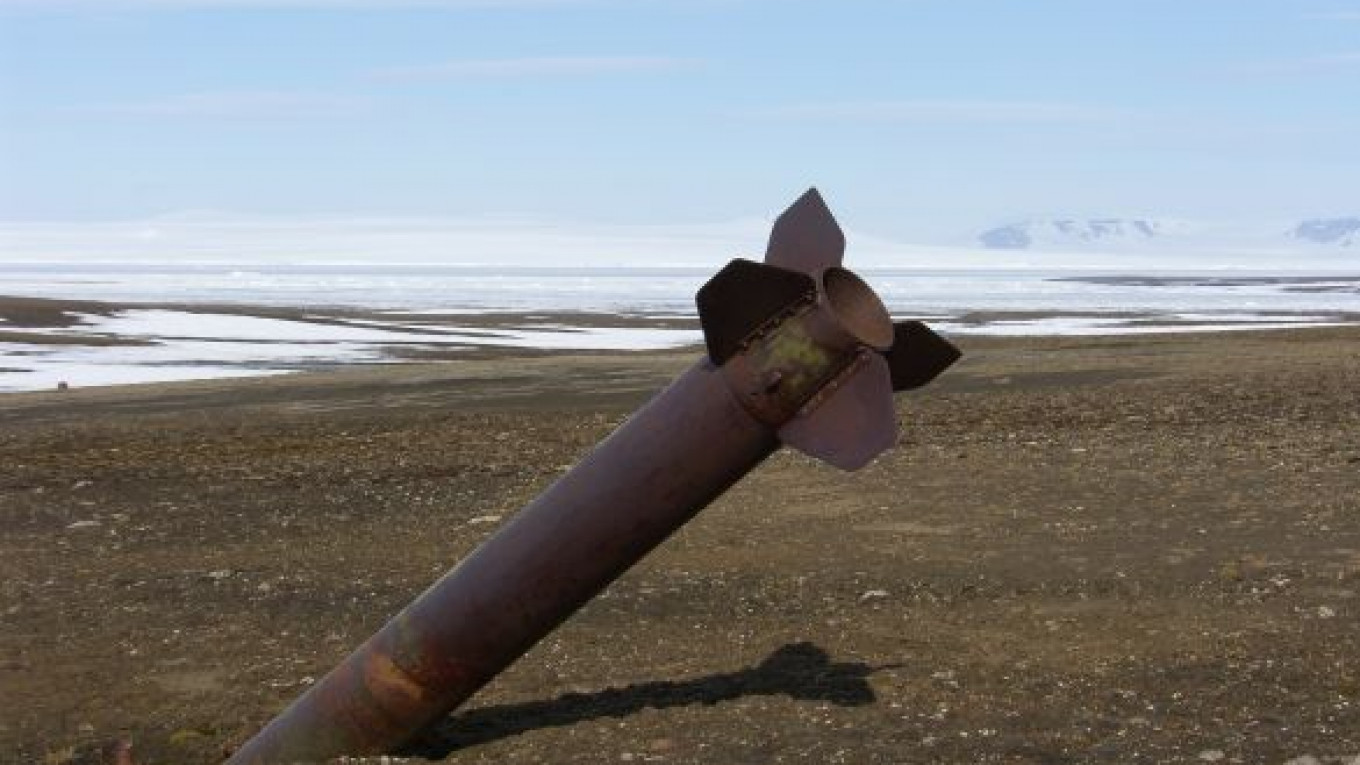Over 100 personnel plus equipment and vehicles have been deployed to clear Cold War-era military and industrial waste from the Franz Josef archipelago.
About 115 people are working on clearing scrap metal and spilt fuel on the islands. Equipment and camps for the workers have been set up on Alexandra, Hooker, Hayes and Rudolf islands, the Natural Resources and Environment Ministry said in a statement.
Natural Resources and Environment Minister Sergei Donskoi said after a trip to the far northern group of islands that workers planned to clear at least 8 tons of garbage this year as part of plans to clean up the islands in preparation for an expected influx of eco-tourists.
Alexandra Land, the western-most island in the archipelago, will be cleared of military and industrial waste by 2014, officials said.
The 191 islands of Franz Josef Land, which constitute Russia's northern most territory, were incorporated into a new Russian Arctic national park along with the northern part of Novaya Zemlya in 2009.
Both areas were heavily militarized during the Cold War, and are still polluted by the detritus of day-to-day military life, including discarded oil barrels and other junk. Then-Prime Minister Vladimir Putin ordered a clean up of the park in 2010.
In June, park director Roman Ershov announced plans to build the first visitor center and accommodation for staff on the islands. The national park is currently administered from Arkhangelsk.
The construction of three nuclear icebreakers with capacity of 60 megawatts each could cost the federal budget 51.8 billion rubles ($1.61 billion) in 2012-2015, materials from the government budget planning commission reviewed by Interfax show. The government has already agreed to earmark 20 billion rubles (5 billion rubles in both 2012 and 2013 and 10 billion rubles in 2014) for the construction of the first of the three icebreakers. Another 7.9 billion rubles will be needed for the first icebreaker in 2015, according to a funding request from state corporation Rosatom, which is commissioning the construction. Funding for the other icebreakers has not been approved yet. Atomflot, a division of Rosatom, and Baltiisky Shipyard signed a contract in August 2012 for the construction of the first icebreaker. The reported cost is 37 billion rubles. Atomflot operates Russia's nuclear icebreaker fleet, which now includes five operating icebreakers.
Related articles:
A Message from The Moscow Times:
Dear readers,
We are facing unprecedented challenges. Russia's Prosecutor General's Office has designated The Moscow Times as an "undesirable" organization, criminalizing our work and putting our staff at risk of prosecution. This follows our earlier unjust labeling as a "foreign agent."
These actions are direct attempts to silence independent journalism in Russia. The authorities claim our work "discredits the decisions of the Russian leadership." We see things differently: we strive to provide accurate, unbiased reporting on Russia.
We, the journalists of The Moscow Times, refuse to be silenced. But to continue our work, we need your help.
Your support, no matter how small, makes a world of difference. If you can, please support us monthly starting from just $2. It's quick to set up, and every contribution makes a significant impact.
By supporting The Moscow Times, you're defending open, independent journalism in the face of repression. Thank you for standing with us.
Remind me later.


